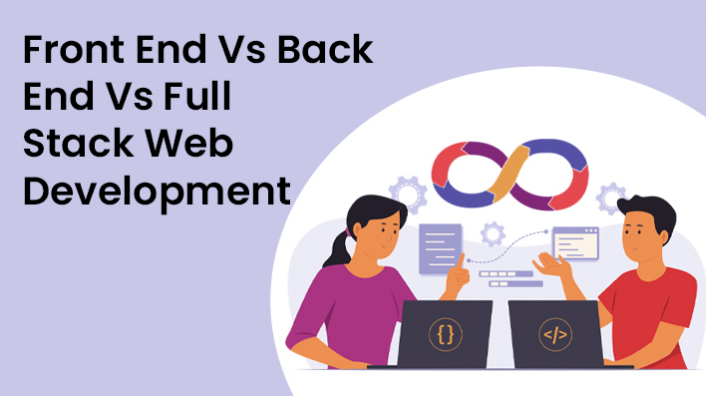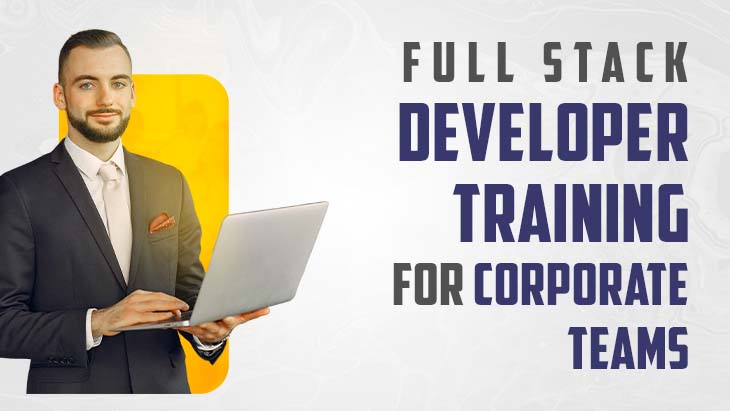Web development refers to the process of creating and maintaining websites or web applications that are accessible over the internet. It involves a combination of tasks that range from designing the user interface and user experience (Front End) to building the underlying server-side infrastructure and database management (Back End). Web development encompasses a wide range of technologies, tools, and frameworks used to bring websites and web applications to life.
Web development has evolved significantly over the years, giving rise to various specialized roles within the field. Front End, Back End, and Full Stack are three distinct domains of web development, each with its unique responsibilities and skill sets. In this article, we will explore the differences between Front End, Back End, and Full Stack development, as well as the essential skills required for each role.
Front End Development:
Front End development primarily focuses on the user interface and user experience (UI/UX) of a website or web application. Front End developers are responsible for implementing the visual elements that users interact with directly. They work closely with designers and use technologies like HTML, CSS, and JavaScript to create responsive and interactive web interfaces.
Key responsibilities of Front End developers include:
* Transforming design mockups into functional web pages.
* Ensuring the website's visual appeal and user-friendliness.
* Implementing responsive designs to optimize user experience on different devices.
* Enhancing interactivity through animations, transitions, and user interactions.
* Collaborating with Back End developers to integrate Front End components with the application's logic.
Front End developers should have a solid understanding of web design principles, responsive design techniques, and proficiency in Front End frameworks like React, Angular, or Vue.js.
Back End Development:
Back End development deals with the server-side of web applications, managing data storage, and handling business logic. Back End developers are responsible for building the underlying infrastructure that powers the Front End and enables smooth functionality. They work with server-side programming languages (e.g., Python, Ruby, Java, PHP, etc.) and databases to create robust and scalable applications.
Key responsibilities of Back End developers include:
* Designing and developing server-side applications and APIs.
* Managing databases and ensuring data integrity and security.
* Handling server-side security and implementing authentication and authorization mechanisms.
* Integrating with external services and APIs to enable additional functionality.
* Optimizing server performance to handle large volumes of requests.
Back End developers should be well-versed in server-side programming, database management, and web server configuration. Additionally, they should have an understanding of data structures and algorithms for efficient data processing.
Full Stack Development:
Full Stack developers are versatile professionals capable of handling both Front End and Back End development tasks. They have a comprehensive understanding of the entire web development process and can work on all layers of a web application. Full Stack developers can build complete web applications independently or collaborate with specialized Front End and Back End teams.
Key responsibilities of Full Stack developers include:
* Creating and maintaining both Front End and Back End components of web applications.
* Understanding the entire software development lifecycle, from design to deployment.
* Collaborating with UI/UX designers to create visually appealing interfaces.
* Implementing server-side logic and managing databases.
* Ensuring seamless communication between Front End and Back End components.
Full Stack developers should have a broad skill set, including proficiency in Front End and Back End technologies, knowledge of various databases, and experience with version control systems and deployment processes.
Key Differences:
1. Scope of Work:
* Front End developers focus on the visual aspects and user experience of a website or application.
* Back End developers handle server-side logic, database management, and data processing.
* Full Stack developers can work on both Front End and Back End aspects of web development, providing end-to-end solutions.
2. Technologies Used:
* Front End developers use HTML, CSS, JavaScript, and Front End frameworks to build the user interface.
* Back End developers work with server-side languages like Python, Ruby, PHP, or Java, and databases such as MySQL, PostgreSQL, etc.
* Full Stack developers must be proficient in a combination of Front End and Back End technologies.
3. Specialization:
* Front End and Back End developers specialize in their respective domains, whereas Full Stack developers have a broader skill set.
* Full Stack developers may not have the same depth of expertise as specialized Front End or Back End developers but can handle a wider range of tasks.
4. Collaboration:
* Front End and Back End developers often collaborate closely to integrate their respective components into a functional application.
* Full Stack developers can work independently or lead development projects that involve multiple roles.
Conclusion:
In conclusion, Front End, Back End, and Full Stack development are distinct domains within the web development landscape, each contributing crucial elements to create fully functional web applications. Front End developers focus on the user interface and user experience, Back End developers handle server-side logic and database management, while Full Stack developers possess a combination of both skill sets.
The choice between Front End, Back End, or Full Stack development largely depends on individual preferences, interests, and career goals. Specializing in a particular domain may lead to a deeper expertise in that area, while becoming a Full Stack developer provides versatility and a holistic understanding of the entire development process. Regardless of the chosen path, continuous learning and staying updated with the latest technologies are essential for a successful career in web development.
Looking to excel in Web Development? Join techaedu now for top-notch website development courses! Master Front End and Back End skills, build responsive websites, and create dynamic web applications. Learn from expert instructors, gain hands-on experience, and access a supportive learning community. Whether you're a beginner or an experienced developer, techaedu offers courses tailored to your needs. Get certified, boost your career prospects, and stay ahead in the competitive tech industry. Don't miss this opportunity to unlock your full potential in Web Development. Enroll today at techaedu and take your skills to new heights!





Leave a reply